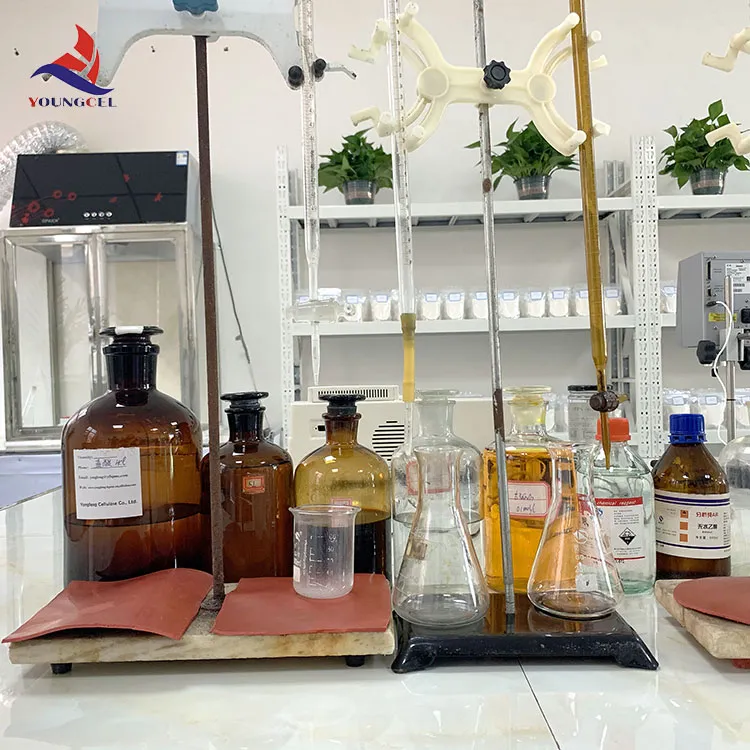The Importance of Cellulose Thickener in Various Industries
Cellulose, a natural polymer derived from plant cell walls, has gained substantial attention in various industries, particularly in food production, cosmetics, and pharmaceuticals, due to its thickening properties. Cellulose thickener serves as a vital ingredient that enhances product viscosity, texture, and overall stability. This article explores the significance of cellulose thickeners, their applications, and their benefits.
What is Cellulose Thickener?
Cellulose thickeners are derived primarily from cellulose sources such as wood pulp or cotton. They are modified through hydrolysis or etherification processes, resulting in products like carboxymethyl cellulose (CMC), hydroxypropyl methylcellulose (HPMC), and microcrystalline cellulose (MCC). Each of these derivatives offers distinct thickening, emulsifying, and stabilizing properties, making them suitable for various applications.
Applications in the Food Industry
In the food sector, cellulose thickeners play a crucial role in improving the texture and stability of products. They are commonly used in sauces, dressings, dairy products, and baked goods. For instance, CMC is often added to ice cream to prevent ice crystallization, ensuring a smooth and creamy texture. Furthermore, these thickeners contribute to the viscosity of stocks and soups, enhancing mouthfeel without significantly increasing caloric content. The use of cellulose thickeners allows manufacturers to create low-fat and reduced-calorie products that maintain the desired texture and consistency.
Role in Cosmetics and Personal Care
The cosmetics and personal care industry also heavily relies on cellulose thickeners. Ingredients like HPMC are used in formulations to create a desirable viscosity necessary for lotions, creams, and gels. By improving the texture, cellulose helps in product application and overall consumer experience. Moreover, cellulose thickeners can stabilize emulsions, such as oil-in-water systems, preventing the separation of oil and water phases. As a result, products maintain their performance and shelf life, which is critical for consumer satisfaction.
cellulose thickener

Contributions to the Pharmaceutical Industry
In the pharmaceutical realm, cellulose thickeners are utilized in drug formulations to enhance the viscosity of liquids, making them easier to swallow or apply. For instance, suspensions and syrups often contain CMC to ensure that active ingredients remain evenly dispersed. Moreover, some cellulose derivatives can be employed as excipients for controlled-release formulations, helping to regulate the release of medications over time. This improved delivery mechanism is essential for maintaining therapeutic efficacy and patient compliance.
Benefits of Using Cellulose Thickeners
The use of cellulose thickeners offers numerous advantages across various applications. Firstly, they are non-toxic and are considered safe for consumption, which is paramount in food and pharmaceutical applications. Secondly, cellulose thickeners are effective in small quantities, providing cost efficiency for manufacturers. Additionally, they are versatile and can function effectively in a wide range of pH levels and temperatures, adapting to various product requirements.
Moreover, cellulose thickeners are often derived from renewable resources, aligning with the growing demand for sustainable and eco-friendly ingredients. As consumers become increasingly aware of environmental issues, suppliers in all industries are being encouraged to incorporate sustainable practices, making cellulose a favorable choice.
Conclusion
In conclusion, cellulose thickeners play an indispensable role across multiple industries, enhancing texture, stability, and performance in food, cosmetics, and pharmaceuticals. With their natural origin, safety profile, and functional benefits, cellulose thickeners are poised to remain a vital ingredient in the development of innovative and high-quality products. As research continues to uncover new applications and formulations, the future of cellulose thickeners looks promising, paving the way for healthier and more sustainable consumer goods.
-
Rdp Powder: Key Considerations for Wholesalers in the Building Materials IndustryNewsJul.08,2025
-
Key Considerations for Wholesalers: Navigating the World of Hpmc - Based ProductsNewsJul.08,2025
-
Hpmc Detergent: Key Considerations for WholesalersNewsJul.08,2025
-
Key Considerations for Wholesalers: China Hpmc For Tile Adhesive, Coating Additives, Concrete Additives, and MoreNewsJul.08,2025
-
Crucial Considerations for Wholesalers: Navigating the World of Construction MaterialsNewsJul.08,2025
-
Key Considerations for Wholesalers Sourcing Additive For Cement, Additive For Concrete, Additive For Putty from Additive Manufacturer Shijiazhuang Gaocheng District Yongfeng Cellulose Co., Ltd.NewsJul.08,2025




